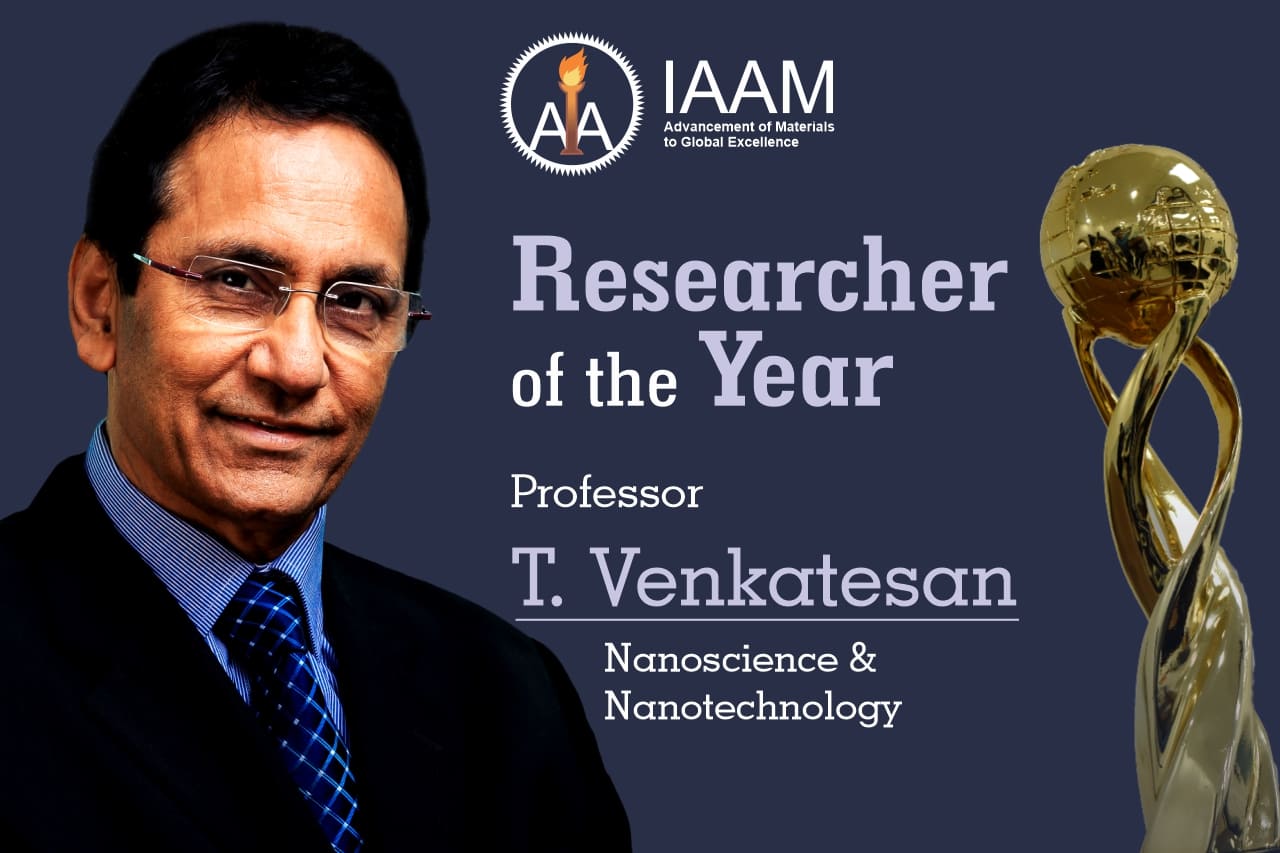
IAAM Awards in the year 2018
In the year 2018, the International Association of Advanced Materials touched new heights and achieved various milestones. While working forward with the motto of ‘Advancement of Materials to Global Excellence’, IAAM left no stone unturned and made all the efforts to develop extensively. The association has always believed in taking new initiatives that can help the members of the materials science community grow and advance in their careers. IAAM has always believed that recognizing the researchers and scientists all around the world for the extremely hard work they put into conducting research is one of the best ways to help facilitate the development of the sphere of advanced materials. Keeping this belief in mind, IAAM, as part of all its events and conferences organized in the year 2018, honoured a lot of highly deserving researchers and scientists with really coveted honours and accolades. In 2018, IAAM honoured some of the best minds working in the sphere of advanced materials science, engineering, and technology.

Major IAAM Awards (2018)
Researcher of the Year: Professor T. Venkatesan
Researcher of the Year is the highest award that the International Association of Advanced Materials imparts to any researcher. The honour is conferred upon the researcher that IAAM finds to have contributed the most to the field of Advanced Materials in the calendar year. In the year 2018, this award was presented to Professor T Venkatesan for his pioneering research and notable contributions to nanoscience and nanotechnology.
Prof. Venkatesan has been a Physicist and manager for 17 years with Bell Labs and Bellcore and in the last 17 years, he has been with the Center for Superconductivity Research at University of Maryland, College Park. He founded the Surface Center at Rutgers University where he was a Professor for about five years (85-90). Most recently he was leading an effort in Oxide Electronics at UMD. Since 2008, he is directing the NanoCore Research Center at the National University of Singapore. He pioneered the Pulsed Laser deposition process and was the first to elucidate the intricacies of the process to make this a reproducible laboratory technique for the growth of high quality multi- component oxide thin films. He is an ISI highly cited Physicist (>20,000 citations ranked 66) has over 450 papers and 27 patents in the area of oxides involving superconductors, magnetic and optical materials. He is a Fellow of the American Physical society, World Innovation Forum, winner of the Bellcore award of excellence and the UMD graduate Board award. He was a member of the Physics Policy Committee and is the founding member of the International Oxide Electronics Workshop.
Professor T. Venkatesan is a pioneer and a continuous source of inspiration to the nanoscience and nanotechnology research in the world. The scientific community of advanced materials offers salutations to Professor T. Venkatesan for his continuous services is rendered in the promotion of modern education as well as research in Asia and USA.

Advanced Materials Laureate 2018:
Professor Enge Wang, China
Advanced Materials Laureate is considered one of the most prestigious awards that a researcher working in the sphere of Advanced Materials can hope to achieve. In the year 2018, International Association of Advanced Materials conferred this honour upon Professor Enge Wang from China.
Professor Wang is the President of the renowned institute, Chinese Academy of Sciences and President Emeritus of Peking University, China. Over the years, he has been one of the leading contributors to the areas of Surface Physics and nanotechnology research.
One of the biggest contributions that he has made is the development of the Reaction-Limited-Aggregation (RLA) which is the opposite of the conventional Diffusion-Limited-Aggregation (DLA) production model. It gives a description of the morphological evolution of two-dimensional islands in the presence of a surfactant. Moreover, his work on the water-surface coupling and the strength of the hydrogen bonds at the interfaces has given rise to a fundamental understanding of water on surface at the molecular level. The list of Prof. Wang’s achievements is quite long. In simple words, he has made vast contributions as a scientist, academician, educationist, and researcher to the entire nanotechnology community by developing various novel nanomaterials.
Prof. Wang has been recognized with a number of international and national academic honors and awards for his excellent academic and research contributions: Outstanding Research Student Award (1988), Young Research Award (1996), Young Scientist Award (1997), Achievement in Asia Award (2003), IBM faculty Award (2003), National Science and Technology Awards (2004), The Third World Academy of Sciences Prize (2005), The Humboldt Research Award (2005), Outstanding Science and Technology Achievement Prize (2005), TWAS Award in Physics (2005), Best Invited Speaker (2007), Distinguished Lecturer (2007), The Stanford GCEP Scholar (2009), Distinguished Science and Technology Awards (2010), IMNI Distinguished Lecturership in Nanoscience (2012), Tan Kah Kee Science Award in Mathematics and Physics (2014), and Advanced Materials Laureate (2018) being few of the most esteemed.
Overview
In the year 2018, International Association of Advanced Materials organized as many as nine international congresses within the field of advanced materials. These conferences were organized in the continents of Asia and Europe. More than 2000 scientists, students, and business executives from over 80 countries of the world graced these events with their presence. As part of these events and conferences, IAAM honoured as many as 225 researchers, scientists, and technocrats from all around the world. Out of these, as many as 50 researchers were honoured with the prestigious IAAM Medals.
International Association of Advanced Materials has always laid emphasis on the need to recognize the valuable contributions that the researchers around the world put in to conducting research and helping the scientific world. By honouring such a high number of researchers and technocrats in a single year, IAAM hopes to do its bit towards motivating a generations of researcher to work harder and take up science and researcher on a long-term basis.